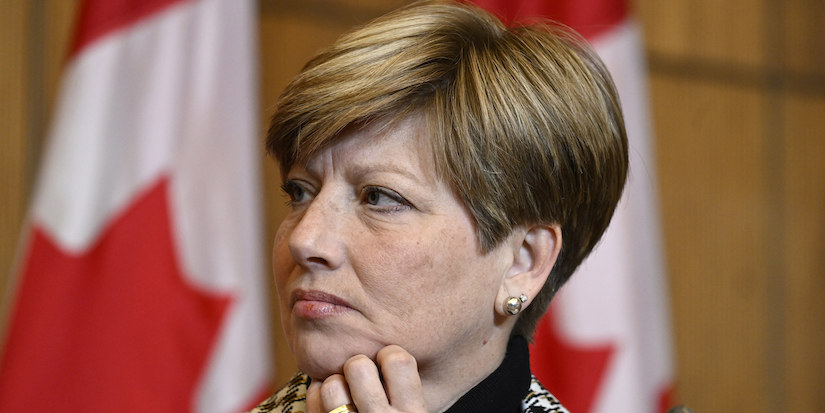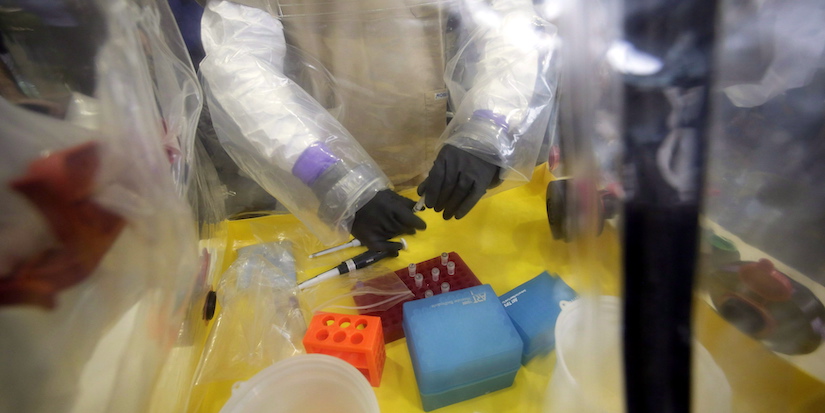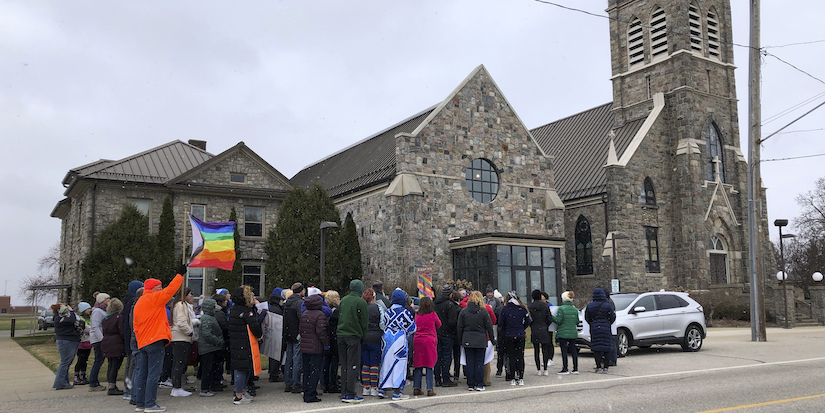Latest News
Businesses must re-implement COVID-19 safety plans

By Hannah Scott, Local Journalism Initiative reporter
Published 4:27 PST, Fri January 7, 2022
Last Updated: 4:43 PST, Fri January 7, 2022
—
Mandatory COVID-19 safety plans for businesses will return in B.C., provincial health officer Dr. Bonnie Henry announced today.
She said plans should include elements like barriers, reducing crowding and mixing of staff, working from home if possible and facilitating workers staying home if they are ill. As with the previous order, this does not apply to child care, post-secondary schools or the K-12 education system.
With school restarting for most B.C. kids next week, Education Minister Jennifer Whiteside said students and staff will be expected to complete a daily health check before going to school each day, and should stay home if they have any symptoms.
“As public health has advised us, individual case management and contact tracing is no longer a helpful tool for us in tracking cases in schools. We need a proxy to understand what may be happening with COVID in schools, and so that proxy will be school attendance,” said Whiteside. “Schools will be monitoring attendance rates closely and will notify public health and the school community if attendance dips notably below typical rates for this time of year. That will trigger a response from public health which may include investigation, it might include the use of rapid tests, to get a better understanding of what’s happening on the ground.”
While individual case exposures will not be reported, Henry said, school communities will be notified in the case of outbreaks.
As more rapid tests arrive in the province, they will be deployed to settings including schools. Henry said, once available, they will be provided to symptomatic children to determine whether or not they should be going to school.
However, Henry said the province has a limited supply of tests, making it important to use them where most appropriate to protect people or ensure they can go back to essential workplaces.
“Really we’re focusing on people over the age of 55, people who are pregnant, people working or living in high-risk settings like hospitals, long-term care, assisted living, in many remote and rural communities and people with higher-risk medical conditions. Those are people who may need these tests to help us keep them out of hospital, make sure they get the treatments that are available as quickly as possible,” said Henry.
“If you are fully vaccinated, at lower risk and have mild symptoms, you don’t need a test. Omicron is spreading widely in our communities. If you have those mild symptoms, whether it’s a runny nose, a cough, and you’ve been out in connection with other people, it’s very likely that you have COVID. What you need to do is stay home and stay away from others, and manage your symptoms.”
Health officials also reported 3,144 new cases of COVID-19 today. Since the pandemic began, B.C. has recorded 276,875 cases.
Of the new cases, 483 are in the Vancouver Coastal Health region (including Richmond), 1,416 in the Fraser Health region, 475 in the Island Health region, 526 in the Interior Health region, 244 in the Northern Health region and no new cases of people who reside outside of Canada.
There are 33,184 active cases of COVID-19 in B.C. and 349 of those people are hospitalized, 93 of whom are in intensive care.
To date, 9,604,331 doses of Pfizer-BioNTech, Moderna, AstraZeneca and Pfizer Pediatric COVID-19 vaccines have been administered in B.C.; 4,142,030 of those are second doses and 1,089,023 are third doses.
This means that 92.5 per cent of adults, 92.1 per cent of people aged 12 and older and 88.5 per cent of people aged five and older have received their first dose of a vaccine. In addition, 89.8 per cent of adults, 89.4 per cent of those aged 12 and older and 83.1 per cent of those aged five and older have received two doses; 25.2 per cent of adults and 23.5 per cent of those aged 12-plus have received three doses.
Sadly, there were nine new virus-related deaths reported today, bringing that total to 2,439. This is the highest single-day number in about a month. Of those who died, two lived in the Vancouver Coastal Health region, five in the Fraser Health region and two in the Island Health region.
Health authorities reported two new health-care facility outbreaks. Active outbreaks continue at 32 long-term care facilities, one assisted or independent living facility and five acute care facilities.
From Dec. 30 to Jan. 5, people not fully vaccinated accounted for 17.1 per cent of cases.
From Dec. 23 to Jan. 5, they accounted for 39.3 per cent of hospitalizations.
Past week cases (Dec. 30 to Jan. 5)—Total 22,512
• Not vaccinated: 3,294 (14.6 per cent)
• Partially vaccinated: 571 (2.5 per cent)
• Fully vaccinated: 18,647 (82.8 per cent)
Past two weeks cases hospitalized (Dec. 23 to Jan. 5)—Total 359
• Not vaccinated: 128 (35.7 per cent)
• Partially vaccinated: 13 (3.6 per cent)
• Fully vaccinated: 218 (60.7 per cent)
Past week, cases per 100,000 population after adjusting for age (Dec. 30 to Jan. 5)
• Not vaccinated: 480.5
• Partially vaccinated: 194.2
• Fully vaccinated: 405.7
Past two weeks, cases hospitalized per 100,000 population after adjusting for age (Dec. 23 to Jan. 5)
• Not vaccinated: 31.2
• Partially vaccinated: 10.1
• Fully vaccinated: 4.7
For the latest medical updates, including case counts, prevention, risks and to find a testing centre near you: http://www.bccdc.ca/ or follow @CDCofBC on Twitter.































